RBC: Apple would only launch low-cost iPhone if it had 'category-killer' experience
Abramsky revealed the information through a set of "key takeaways" from his meeting with Apple COO Tim Cook and CFO Peter Oppenheimer on Wednesday, though he did not provide any direct quotes from the two executives. "Apple’s primary criterion for launching a lower-end iPhone is an innovative, category-killer experience," he wrote.
Though those familiar with Apple's design philosophy and strategy may dismiss the statement as seemingly obvious, it does run against the grain of recent assertions that Apple would release a contract-free iPhone for primarily financial reasons. For instance, Deutsche Bank analyst Chris Whitmore set off a round of speculation in June when he speculated that "it's time for a mid-range iPhone," largely based on the assumption that Apple is looking to reach the pre-paid market, which makes up two-thirds of the world's 1.5 billion mobile customers.
On Wednesday, Ticonderoga Securities analyst Brian White relayed recent Chinese reports suggesting China Telecom could release a "simplified" and more economical iPhone 4 alongside the iPhone 5 later this year. It is not known, however, whether the rumored device would require a two-year contract or would be the contract-free iPhone.
Several major media outlets (1, 2, 3) suggested earlier this year that Apple has been hard at work on a cheaper version of the iPhone that wouldn't require a carrier subsidy.
In addition to details surrounding Apple's interest in a cheaper iPhone, another takeaway from Abramsky's meeting was that Apple has maintained "sustained advantages" over Android, including an integrated approach to hardware and software, oversight of user experience and application ecosystem curation. These advantages should help the company weather the "expected explosion of low-priced Android smartphones" that will be detrimental to Nokia, Research in Motion and others, he said.
Abramsky added that he sees Apple's current legal disputes with Android vendors such as HTC and Samsung as likely to result in a settlement. Apple recently won a battle in its legal disagreement with handset maker HTC, which has said it's interested in settling outside of court.
The analyst also noted that iCloud is expected to be ready for "significant scale," with Apple having learned its lesson from the MobileMe service.
He came away from the meeting with an overall positive outlook on Apple. The executives affirmed Apple's "untapped global opportunity," especially in China, which has seen tremendous growth in recent years, the analyst said. Other emerging markets such as Latin America, the Middle East and India also provide Apple with a significant opportunity for expansion.
RBC maintains a price target of $500 for shares of Apple stock, reiterating its Outperform rating for the company.
 Josh Ong
Josh Ong

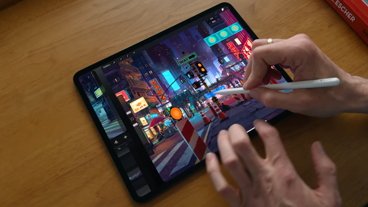

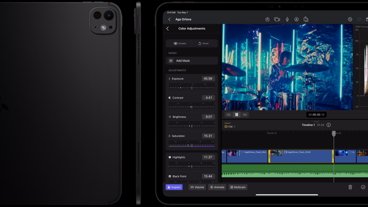






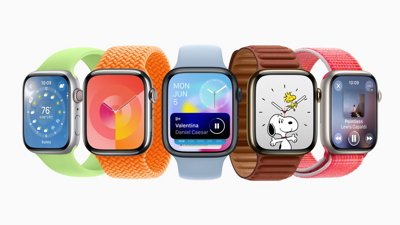
 Charles Martin
Charles Martin
 Christine McKee
Christine McKee
 Andrew Orr
Andrew Orr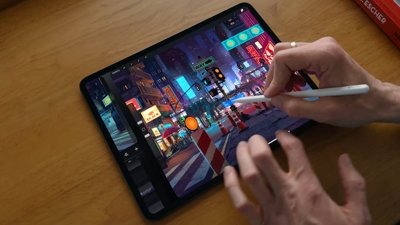
 Wesley Hilliard
Wesley Hilliard
 Malcolm Owen
Malcolm Owen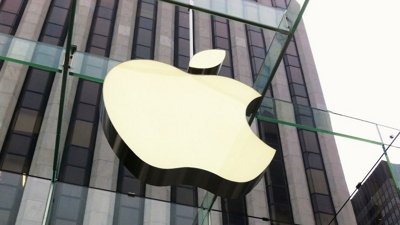

 Amber Neely
Amber Neely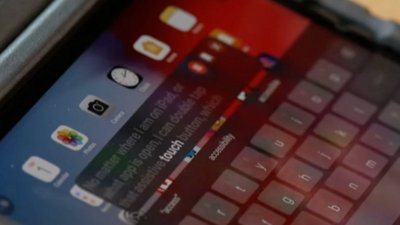
 William Gallagher
William Gallagher

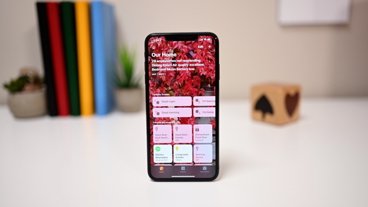







35 Comments
Apple has rarely released a product unless it has been a category killer. The times they have released a product which has not been a category killer they have failed (e.g. iPod Boombox…yeah, I know most don't even remember that travesty, and the original Apple TV).
However, I don't know about this point of view. The fact is that the iPod Touch is indeed a category killer (this is evident from the complete absence of any competitors). Why wouldn't Apple be able to add a cellular chip to the iPod Touch and sell it for $120 more without contract (i.e. $350?). It would only extend the category defining aspect of the iPod Touch.
They could sell iPod Touches the way they do iPads. WiFi only for a base price of $229, and with a 3G chip for an additional $119 ($129 for the iPad, but I think Apple could afford to reduce the markup by $10).
The point is that Apple does not need a new product. They need an iPod Touch + 3G..
After a meeting with two of Apple's top executives, RBC Capital Markets analyst Mike Abramsky said the company's primary requirement for launching a lower-end iPhone is whether the handset would provide an "innovative, category-killer experience."
The killer experience is the iPhone itself. If it can beat the high end smartphones it can certainly beat the lower end smartphones.
So is Apple considering to strip important features from it's iPhone?
The fact of the matter is that Apple sells it's iPhone 4 contract free for ?600 and it's iPod counterpart for ?230. And even if you add ?25 for the missing parts the price difference is more than ?300 and thats a huge difference.
So Apple could easily drop the price to ?350 or so without compromise and still earn 40% or more.
J
The article mentions the need for a contract free iPhone. The author seems to ignore the fact that in several countries the iPhone has been unlocked from day 1 (don't let yourself be pinned down by the US situation only). When I got my 3GS, I just put my prepaid SIM card in the iPhone, and it worked (after registering, I guess). Occasionally, when I expect to be out of range of my usual WiFi networks, I purchase a month's worth of data (€10 for 500MB). My carrier is Base (Belgium).
It is true, however, in the prepaid situation where the entry price is unsubsidized, that a more affordable model would create an additional market for people who mostly look at the up-front price.
Apple Inc. generally goes after profit, not marketshare.
They are raking in about two-thirds of the cellular handset industry's profits even though their marketshare is about six percent.
If Apple wants to delve into the "low-cost" smartphone market, they will do it in a way where they still maintain their margins, much in the same way they drove down into the MP3 player market's bottom end.
Today, one can purchase a 4GB MP3 player for half the price of the 2GB iPod shuffle, yet no one essentially bothers. Apple isn't going to play the cost competition game.
Slightly thicker than iPod Touch form factor Mini SD
(r)evolutionary quality camera/HD video capability
Telephony only
One screen UI with permanent set of apps: Clock/alarm, notes, calculator, voice recorder, calendar, iPod Lite? etc.
BoM $75, sell price: $300
Prepaid market
$25 phone to consumer w/phone plan
Covers low end market, 9-15 year olds Am I crazy or stupid?